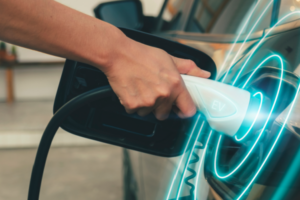I confess I am an avid electric vehicle enthusiast. I have solar power on the roof and a house battery. I haven’t paid for petrol or any substantial amount for electricity for three years now. So yes, I’m a champion for owning electric vehicles (EVs).

Over the last few years, there has been a definite rise in the purchase and popularity of EVs. As the world becomes more mindful of our environmental footprint, governments have introduced incentives to assist and encourage the move towards EVs.
Tax Concessions
The Australian government has introduced several federal tax concessions to promote the adoption of EVs as part of its commitment to reduce greenhouse gas emissions and promote sustainable energy solutions.
The main incentive for buying an electric vehicle in Australia is the generous luxury car tax (LCT) exemption. Under the current rules, EVs are exempt from the LCT if they meet the following criteria:
- The vehicle is designed to carry fewer than nine passengers
- The vehicle’s fuel consumption is less than 7.0 litres per 100 kilometres
- The total cost of the vehicle is less than the LCT threshold of $84,916 (2023)
This exemption can result in significant savings for electric vehicle buyers, as the LCT can add up to 33% to the cost of a new vehicle priced above the threshold.
In addition to the LCT exemption, there are other federal tax concessions for electric vehicles in Australia, including:
- Accelerated depreciation: Businesses that purchase EVs can claim an immediate deduction of the full cost of the vehicle in the first year of use for business purposes, under the instant asset write-off scheme. This means that businesses can claim a deduction of up to $150,000 for each electric vehicle they purchase. However, the deadline is looming and will cease by the 30 June 2023.
- Reduced import taxes: The Australian government has also reduced import taxes on electric vehicles to encourage their importation and sale. From 1 July 2022, the import duty on electric vehicles will be 0%, subject to the luxury car limit, except if imported from Russia and Belarus.
It’s important to note that the state and territory governments in Australia also offer their own incentives for electric vehicle purchases. These may include additional tax concessions, stamp duty exemptions or reductions, and access to free or discounted charging infrastructure.
The latest exemption just introduced is an FBT- exemption for electric vehicles which applies to qualifying car benefits provided on or after 1 July 2022. The car must be a zero or low emissions vehicle so hybrids (cease to be eligible from 1 April 2025) can qualify and hydrogen fuel cell electric vehicles. No amount of luxury car tax can be payable on the vehicle but as mentioned above, the threshold for LCT has increased to $84,916 (2023).
To EV, or not to EV?
The federal tax concessions for buying an electric vehicle in Australia, which include a higher luxury car tax exemption, FBT Exemption, accelerated depreciation, and reduced import taxes, combined with State and territory incentives, provide some enticing reasons to purchase an electric vehicle.
As there are many points to consider when deciding to purchase an electric vehicle, it is beneficial to know what incentives are available and how to utilise them. Please get in touch with your local Accru advisor if you would like to know more about this topic.
